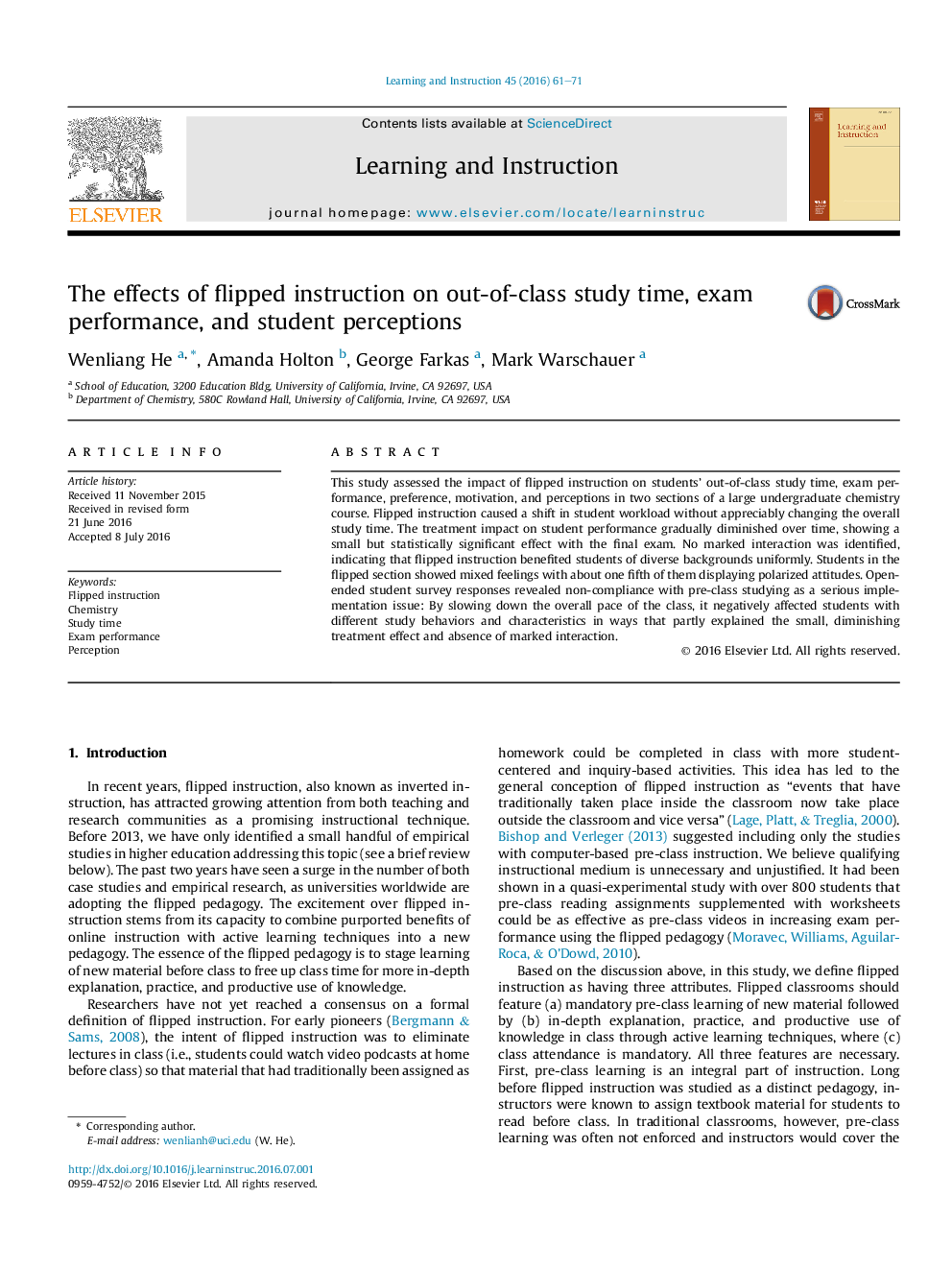| Article ID | Journal | Published Year | Pages | File Type |
|---|---|---|---|---|
| 365462 | Learning and Instruction | 2016 | 11 Pages |
•Flipped instruction shifted the workload without increasing overall study time.•Treatment had a small positive impact on final exam with no marked interaction.•Treatment students’ attitudes towards flipped instruction were polarized.•Non-compliance with pre-class study was a major implementation issue.
This study assessed the impact of flipped instruction on students’ out-of-class study time, exam performance, preference, motivation, and perceptions in two sections of a large undergraduate chemistry course. Flipped instruction caused a shift in student workload without appreciably changing the overall study time. The treatment impact on student performance gradually diminished over time, showing a small but statistically significant effect with the final exam. No marked interaction was identified, indicating that flipped instruction benefited students of diverse backgrounds uniformly. Students in the flipped section showed mixed feelings with about one fifth of them displaying polarized attitudes. Open-ended student survey responses revealed non-compliance with pre-class studying as a serious implementation issue: By slowing down the overall pace of the class, it negatively affected students with different study behaviors and characteristics in ways that partly explained the small, diminishing treatment effect and absence of marked interaction.
